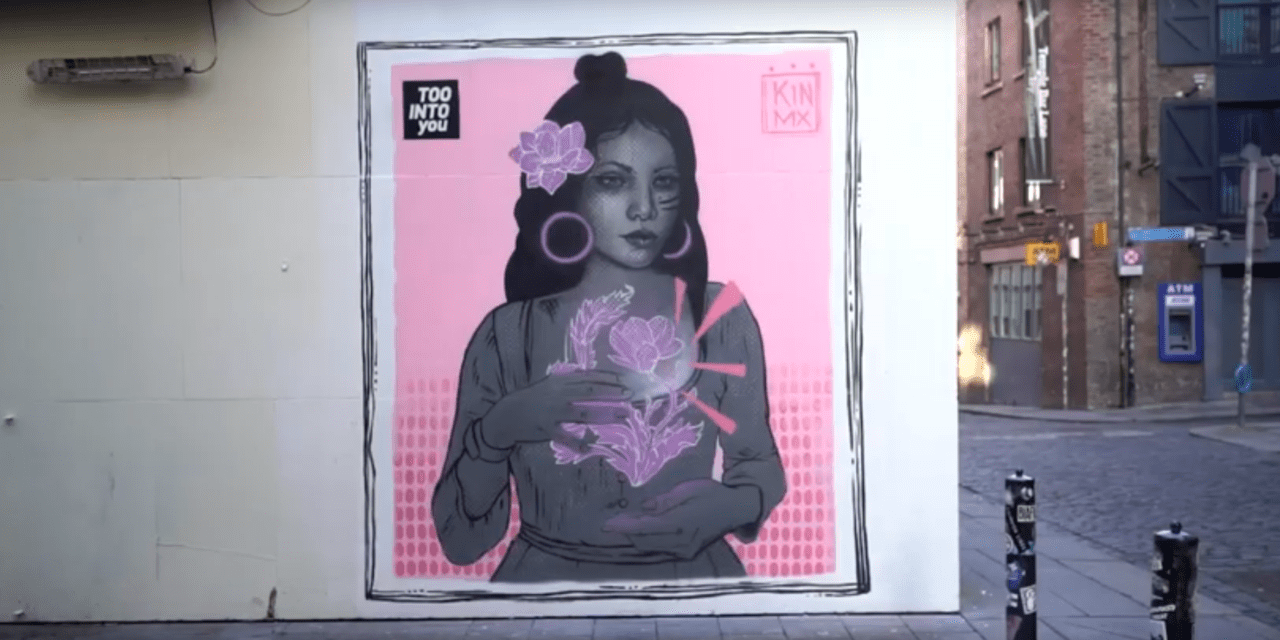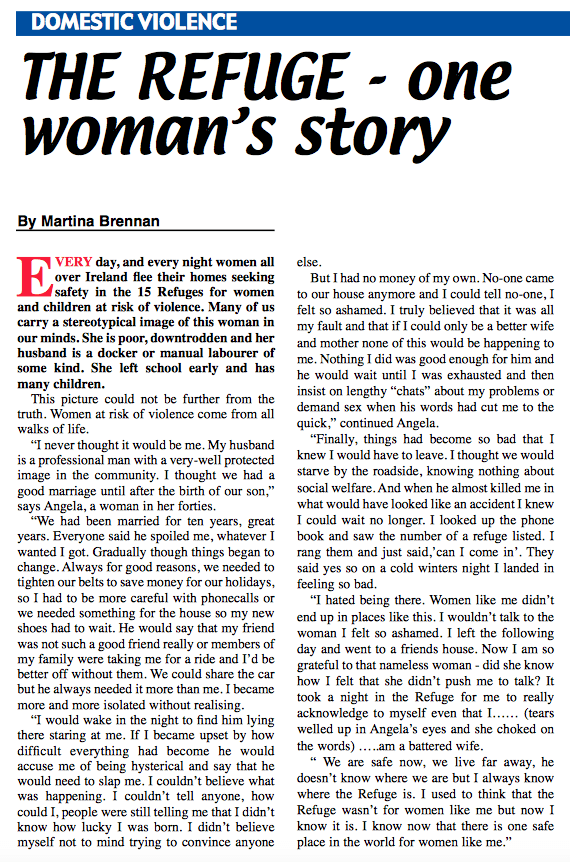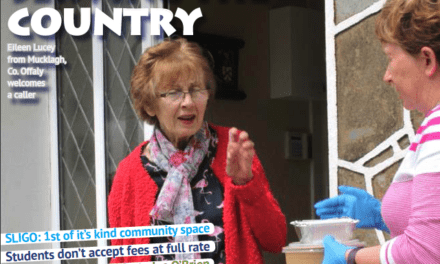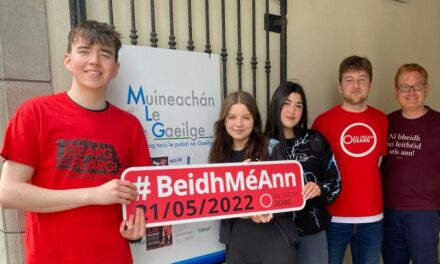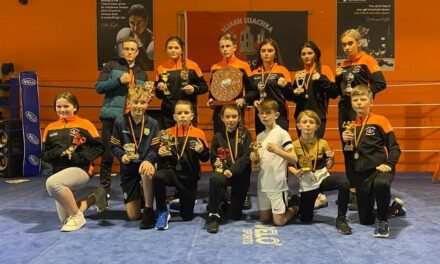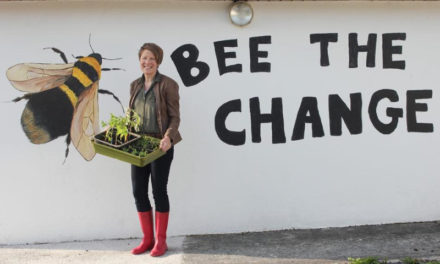Women’s Aid released a report on young people’s experience of abuse in intimate relationships here in Ireland to mark the International Day for the Elimination of Violence against Women (November 25th).
BY BETH ARDILL
The report was based on “a robust nationally representative sample of 500 young people (aged 18-25)” and was conducted by Red C.
It found that 3 in 5 young people have either personally experienced or know someone aged 25 or younger, who has experienced abuse by a current or former partner.
Community and civil society groups nationwide hold events annually at this time of year as part of the 16 Days of Action Campaign, which aims to raise awareness and call for changes at international, national and local level to make women and children safe from abuse. It is a campaign ‘Changing Ireland’ has reported on since 2001.
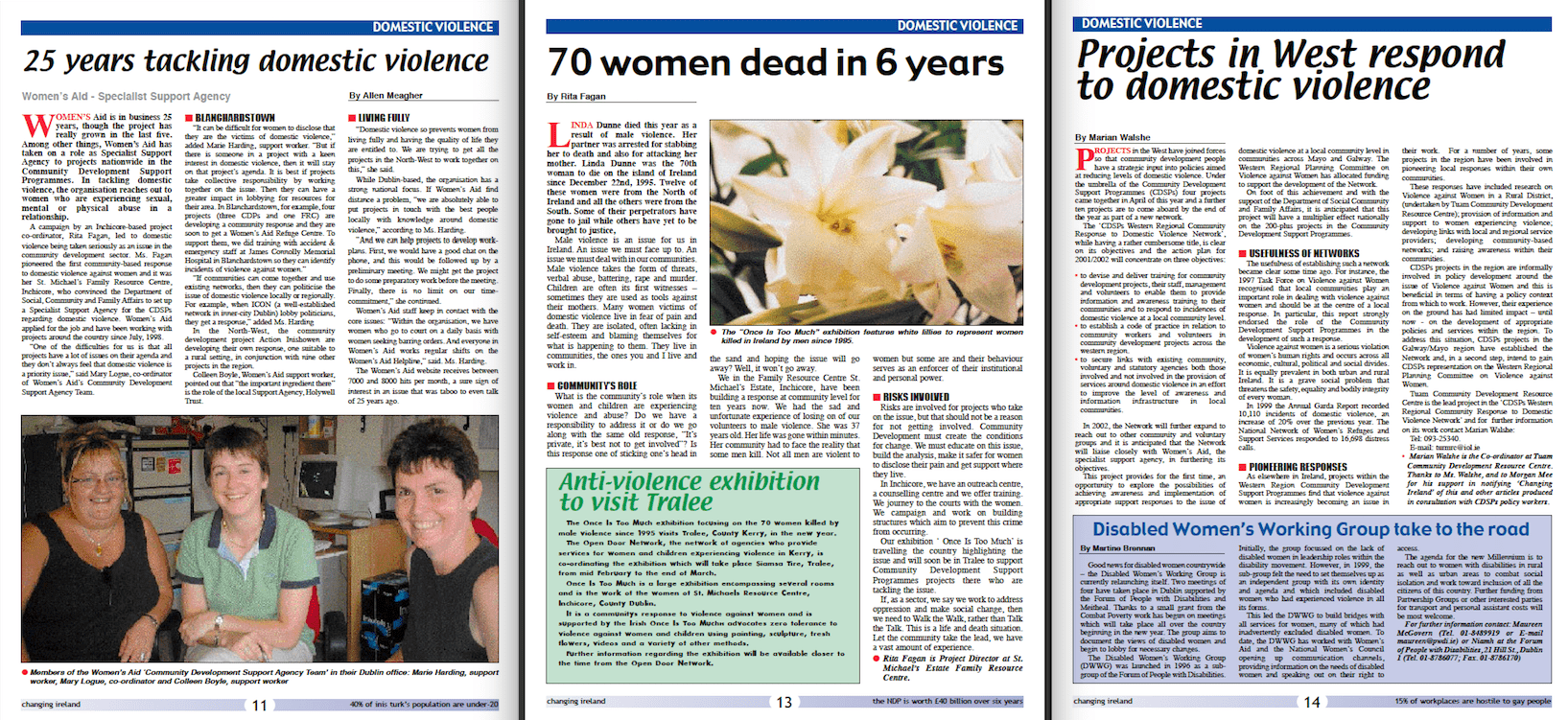
• See the full 20 year archive at: https://www.changingireland.ie/digital-magazine-archive/ These page images link to reports in our 2nd edition.
The research published today revealed that 1 in 5 of the young women who took part in the survey were directly abused, with 51% being under 18 when the abuse started. The report also shows how gendered this form of abuse is among younger people including minors, in line with international figures on all ages. The survey found that 1 in 11 young men experienced abuse.
Sarah Benson, CEO of Women’s Aid, said it shows “that we have particularly alarming levels of intimate relationship abuse experienced by young women in this country. One fifth of young women said they experienced abuse which included emotional abuse, physical violence, and sexual assault, stalking and harassment. Based on our 2016 CSO data this is as many as 44,540 young women (18-25) which is shocking.”
She said, “Even more troubling is the fact that 51% of young women who had suffered abuse said that it began before their 18th birthday, with just 18 years old being the average age at which the abuse began.”
New research has shown that 1 in 2 young women abused by a partner experiences abuse online, “including constant bombarding with messages, hacking of email and social media accounts and the taking, sharing and threatening to share intimate images without consent”.
Ms. Benson also stated that they “know that the abuse that takes place online can be particularly devastating given the ‘always on’ nature of life online. It is draining, can often feel inescapable and can be difficult to block a persistent abuser from making contact. It is not a reasonable solution to ask a young person being abused to ‘opt out’ or ‘switch off’. This only isolates people ever more and they should never suffer or be further excluded because of the actions of the perpetrator.”
There are long lasting effects from an intimate abusive relationship. “Our research showed that 84% of young women said that the abuse had a ‘severe’ impact on them. Young women reported that they had suffered anxiety, depression, low self-esteem as well as being isolated from family, friends, and workmates because of the abuse. Some also reported suicide ideation and hospitalisation due to physical injuries,” she said.
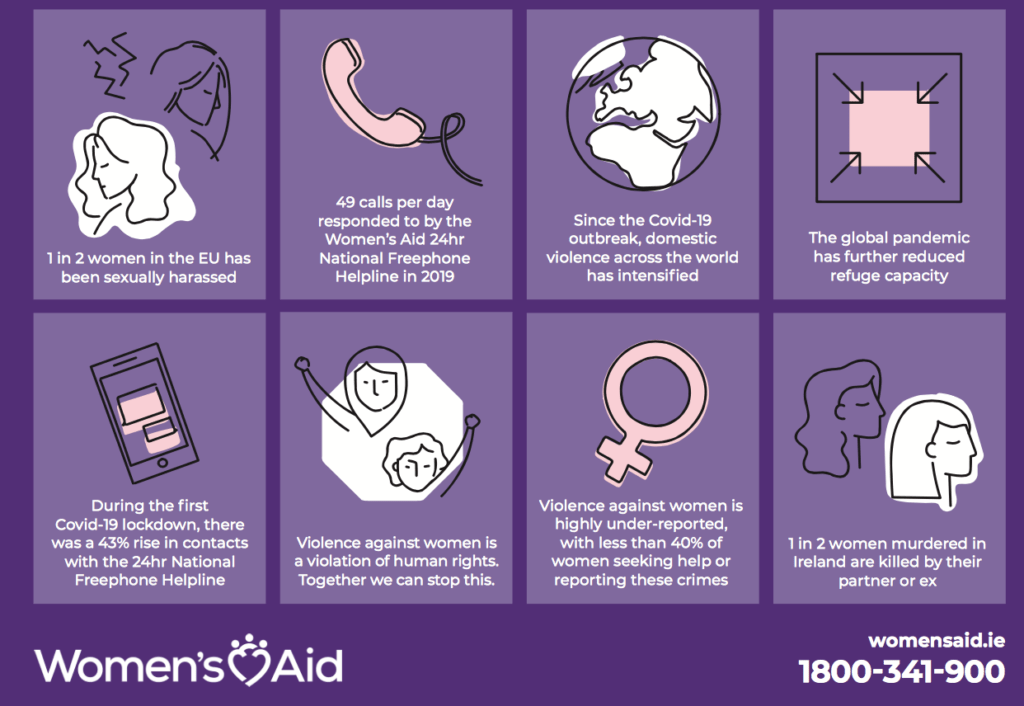
Ms. Benson said their report only scratched the surface of this huge problem in Irish society: “We need regulation. We need legislation. We need more in-depth research and extensive education and awareness campaigns – including in schools. Most of all, as a community we need to ensure responsibility lies with the perpetrator and to say loudly and clearly to anyone affected by intimate relationship abuse that ‘Yes, it’s abuse. It is never okay. It is not your fault and you will be believed and supported.”
Women’s Aid have launched their ‘Too Into You’ Public Awareness Campaign which “highlights the signs of unhealthy relationships and encourages young people to reach out for support.” The campaign website has a number of useful tools including a relationship health check quiz and a guide to protecting yourself online.

